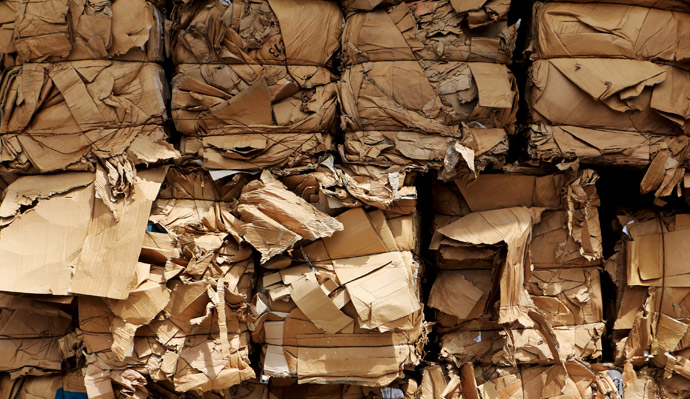Big Business, Big Impact
Recycling cardboard is one of the of the best, and quickest, ways for your company to make a big impact and reduce its environmental footprint. There are many factors that make carboard an ideal recyclable. Cardboard retains its value for longer than many other commodities and it breaks down completely—which means it’s easy to store, bale, and transport. No lugging odd-shaped plastics or bulky scrap to a recycling center or paying to transport air. Plus, cardboard makes up over half of the waste stream at many businesses, including restaurants, grocery chains, distribution centers, warehouses, and retail establishments. If you’re beginning a zero waste initiative, or any sustainability effort, and want to move the big rocks first, recycling cardboard is the place to start.
The Environmental Benefits of Cardboard Recycling
Companies can achieve significant environmental impacts by putting an efficient cardboard recycling program into place. Often, it’s difficult to conceptualize how recycling works, and what the benefits really are to the environment. Recycling cardboard has a positive effect on the environment in four key ways:
Cardboard Recycling Saves Trees
Perhaps this is the most obvious impact, but let’s get specific. Cardboard, like other recyclable paper-based products, is made from tree pulp, which can be recycled into new paper products 5-7 times before its fibers become too short to be reusable on their own. Since grocery chains, manufacturers, and distribution centers tend to produce incredibly clean cardboard waste, the fibers retain their integrity even longer and are easy to recycle. For every ton of cardboard your company recycles, you will save about 17 trees—and a single semi-trailer load of baled OCC (old corrugated cardboard) weighs about 20 tons. Some of our biggest clients use a trailer or more every week. Think about how much cardboard your company uses and do the math!
Cardboard Recycling Reduces C02 Emissions
It’s difficult to determine precisely how much of an impact cardboard recycling has on greenhouse gas emissions, but we know that it does have an effect in a couple of ways. First, those 17 trees you saved for each ton of recycled cardboard will absorb 250 pounds of carbon dioxide from the air each year—while incinerating that same ton of cardboard would emit 1500 pounds of carbon dioxide. More importantly, manufacturing new paper from virgin trees uses a lot more energy than using recycled feedstock. In fact, for every ton of recycled cardboard, you will save about 5,000 kilowatts of energy and 380-475 gallons of oil and other fossil fuels. All in all, by some estimates, your company could help reduce 1 ton of C02 emissions for each ton of recycled cardboard.
Cardboard Recycling Saves Water
The process to create wood pulp from virgin trees uses thousands of gallons of water. By recycling your cardboard instead, you will save 7,000 gallons of water per every ton of cardboard you recycle.
Cardboard Recycling Saves Landfill Space
Again, the savings here can add up quickly. For every ton of cardboard that your company recycles, you will save three cubic yards of landfill space—or 60 cubic yards per trailer load. That’s a lot of space being taken up in your local landfills unnecessarily while the OCC takes decades to break down.
In addition to the positive environmental impacts your company could generate through cardboard recycling, sending your OCC to the landfill is often more expensive than recycling. Depending on the volume your company produces, recycling cardboard could even become a significant revenue source for your company. It takes a little time and training to get your staff to see used cardboard as a valuable commodity rather than waste, but the benefits are worth it. Contact us to request a free waste audit and find out how much your business could save, and the kind of environmental impact you could have, by establishing a cardboard recycling program.

